Content from the Brookings Doha Center is now archived. In September 2021, after 14 years of impactful partnership, Brookings and the Brookings Doha Center announced that they were ending their affiliation. The Brookings Doha Center is now the Middle East Council on Global Affairs, a separate public policy institution based in Qatar.
President Donald Trump announced in a series of tweets on December 10 that the United States recognized Morocco’s sovereignty over the disputed Western Sahara territory, would open a consulate in Dakhla, and had brokered the qualified normalization of ties between Morocco and Israel. Confirmed by Morocco’s royal cabinet and Ministry of Foreign Affairs, this controversial quid pro quo agreement will have far-reaching regional, international, and domestic implications.
According to the agreement, the two states will resume partial diplomatic ties in the near future, establish direct flights, and promote economic and technological cooperation. However, Morocco has not committed to opening an embassy in Israel (rather, it will open liaison offices, as it had prior to 2002) nor will it establish full diplomatic relations. Within a day of Trump’s announcement, his administration sent notice to Congress about a potential $1 billion arms sale to Morocco — a similar move to the one the administration made following the United Arab Emirates’ normalization with Israel.
Although this historic agreement has surprised citizens in Morocco and elsewhere in the Middle East and North Africa (MENA) region, given Morocco’s past position on the matter, it was a strategic step for the regime. First, the kingdom’s foreign policy is the domaine réservé of the monarchy (not the elected government). Rabat used Trump’s imminent departure from the White House to promote its diplomatic and security interests. Indeed, the Trump administration is eager to increase its peace plan’s legitimacy and significance, and has only a limited time to do so. The Moroccan regime, whose overall diplomatic strategy revolves around obtaining international recognition of its rights over Western Sahara, seized this rare opportunity.
Partial normalization has triggered outrage from some of Morocco’s neighbors and will likely upset many of its citizens; indeed, 88% of surveyed Moroccans said they would oppose diplomatic recognition of Israel, and 70% viewed the Palestinian cause as one that concerns all Arabs (according to the 2019-2020 Arab Opinion Index). While this discontent may not translate into immediate contestation, it will taint citizens’ view of the regime and may shift state-society relations in the long term.
Yet, the Moroccan monarchy’s strategic move will strengthen its international standing and solidify ties with other countries (including several Gulf states). Furthermore, Morocco’s move will not isolate it within the region, as the kingdom is the fourth MENA state to partially normalize ties with Israel in 2020 (following the UAE, Bahrain, and Sudan) and the sixth overall (Egypt did so in 1979 and Jordan in 1994). Other MENA states may follow in the near-to-medium future, perhaps starting with Oman.
International and regional standing
The U.S. decision to recognize Morocco’s claim to Western Sahara and the partial normalization of ties between the kingdom and Israel is unlikely to change the positions of the European Union (EU) and the United Nations (U.N.) on the dispute. The U.N. will continue to push past Security Council resolutions, while the EU will try to strike a balance between maintaining its strong ties with Morocco and backing the U.N. peace process. Within the EU, however, it may be a different matter for France, which is Morocco’s closest ally and the EU state most sympathetic to the kingdom’s position in the dispute. Although France officially supports a political solution negotiated under the auspices of the U.N., it is unlikely to come out against Morocco in light of the close relationship between its leadership and the Moroccan regime.
Within the MENA region, Morocco’s rival Algeria as well as Iran criticized the regime’s decision, and it will likely be further criticized by other states that have tense relations with Israel, such as Lebanon, Syria, and Iraq. However, these states are not Morocco’s target allies; in the region, the kingdom prioritizes its ties with Gulf states, which provide financial support and backing in regional forums often in exchange for security training and diplomatic support. The deal will not change Morocco’s relations with Qatar, one of the kingdom’s closest allies which will likely refrain from commenting.
Importantly, the deal will solidify Morocco’s tempestuous relations with the Saudi-Emirati bloc as the UAE and Bahrain have already normalized ties. Both have also established consulates in the Western Sahara city of Laayoune, a nod to Morocco’s claim over the territory. While Saudi Arabia remains silent on the possibility of normalization, it is one of the Trump administration’s closest allies in the region and may follow Morocco’s example in the future, especially if the rumored NEOM meeting between Crown Prince Mohammad bin Salman and Israeli Prime Minister Benjamin Netanyahu did indeed take place. Oman, another Gulf state that may be a likely candidate for partial normalization, has already praised the Moroccan regime’s decision.
Domestic impact
At home, communication from the regime highlights the Western Sahara win and includes little information on the deal with Israel. In fact, the monarchy is positioning itself as a mediator between Palestinians and Israelis. State communication emphasizes that the kingdom is merely resuming flights, liaison offices, and diplomatic ties with Israel.
Immediately after Trump’s announcement, the royal cabinet issued a press release discussing a phone call between Palestinian President Mahmoud Abbas and King Mohammed VI — who is incidentally the chairman of the Al-Quds Committee (a committee under the auspices of the Organization of Islamic Cooperation in charge of discussing and implementing resolutions related to the Arab-Israeli conflict). The implication of this phone call and the communication around it is that the Palestinian issue remains an important matter to the Moroccan regime and that ties remain strong between the two parties. The Ministry of Foreign Affairs has claimed Morocco’s position on Palestine has not changed; it continues to support a two-state solution and to promote negotiations between both sides that would lead to definitive peace.
Domestic political actors are divided on the issue. Some have expressed the opinion that normalizing ties with Israel merely formalizes an existing and historical relationship. Indeed, there are over one million Israeli citizens of Moroccan origin; this is the second-biggest community in Israel after the Russian-Jewish community. There is also existing economic cooperation between the two countries; in fact, yearly trade between them amounts to some $30 million. Furthermore, both sides have cooperated covertly in the past in terms of security, with Israel notably helping the Moroccan regime obtain intelligence and weapons. For its part, Morocco — under the late King Hassan II — moderated negotiations between Israel and Egypt from 1977 to 1979 and between Israelis and Palestinians in the late 1980s and early 1990s.
Other actors view the agreement less enthusiastically and argue that Morocco’s claim on Western Sahara is legitimate and that the kingdom does not require recognition from the United States nor normalization of ties with Israel. This view is more closely aligned to that of the general population; only 9% of surveyed Moroccans favor the peace treaties between Israel and the UAE and Bahrain, while a mere 13% think that it is beneficial for the Arab region that some countries are coordinating their foreign policies with Israel. The religious branch of the Islamist Justice and Development Party leading the government denounced the partial normalization of ties, while the party’s leadership was less critical and more deferential to the monarch’s decision.
Preempting domestic criticism, King Mohammed VI has said that his position on Palestine is unchanged, that Morocco places its territorial issue and the Palestinian cause at the same level, and that the regime will use its new position to broker peace in the region. Yet, the Moroccan regime cannot have it both ways; public opinion will not be appeased by pro-Palestine rhetoric at home while the regime portrays itself as Israel-friendly on the international stage.
Outlook: A smart decision?
At home, the Moroccan regime is banking on citizens’ strong nationalist sentiment over Western Sahara overshadowing their overwhelming support for Palestinians. However, the regime may find that Moroccans are not prepared to treat the situation as a zero-sum game. Many Moroccans, who support both Morocco’s claim over the disputed territory and the Palestinian cause, may view the agreement as both an unnecessary step (given that they already consider Morocco’s claim as legitimate) and a betrayal of the Palestinians. While popular disappointment will not immediately trigger contestation, it may shift state-society relations in the long term.
Abroad is where Morocco’s decision has the most potential. Within the Gulf Cooperation Council, Jordan, and Egypt, the decision will help the kingdom strengthen ties — or, at the very least, it will not hurt already strong alliances. As for the United States, its recognition is a win for Morocco, but the timing and significance of this historic deal raises an important question: What will President-elect Joe Biden do come January 20? Of course, there is a possibility that he may renege on Trump’s deal, so Morocco will likely wait to establish ties. When it does, the regime will use its partial normalization with Israel to promote its interests on the international stage.
The Brookings Institution is committed to quality, independence, and impact.
We are supported by a diverse array of funders. In line with our values and policies, each Brookings publication represents the sole views of its author(s).

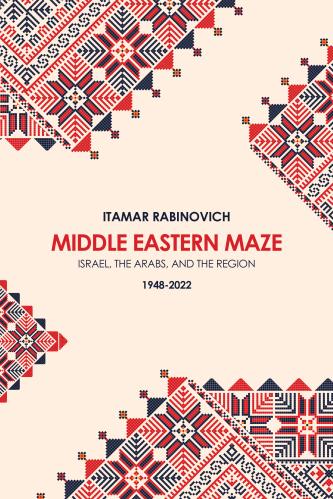
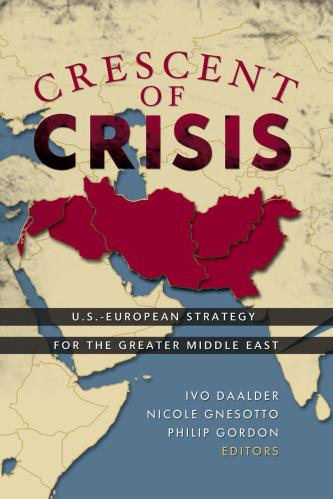
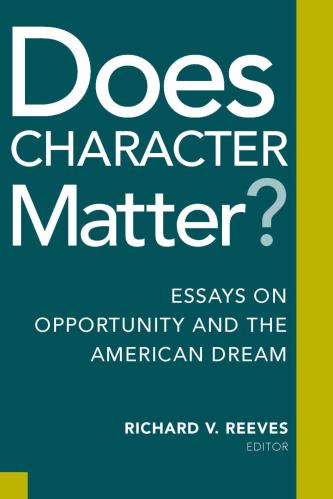
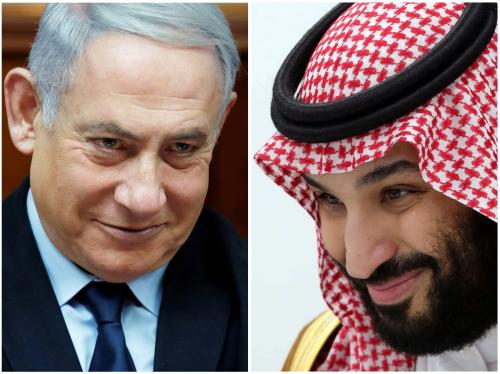
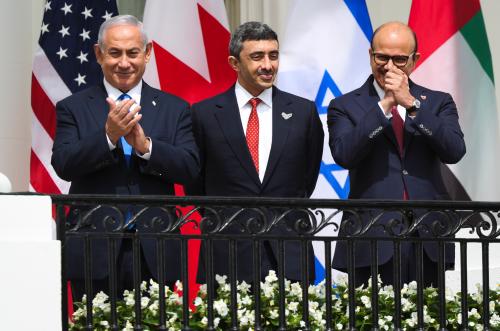
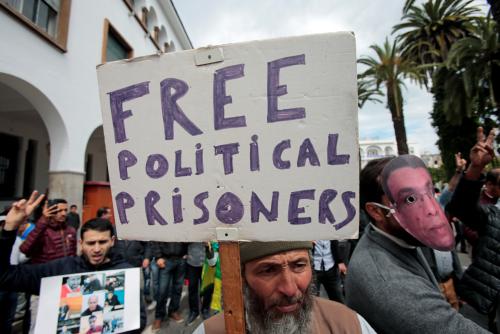




Commentary
Morocco’s partial normalization with Israel comes with risks and gains
December 14, 2020